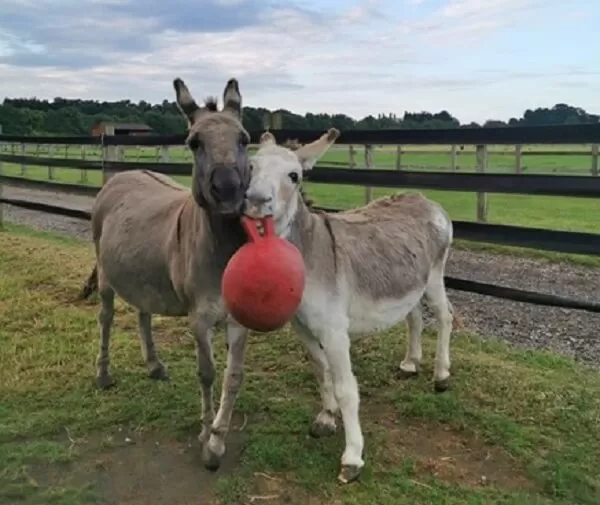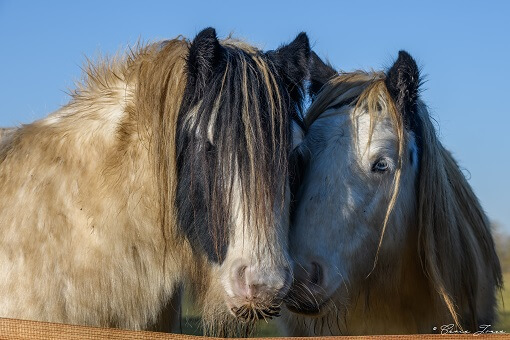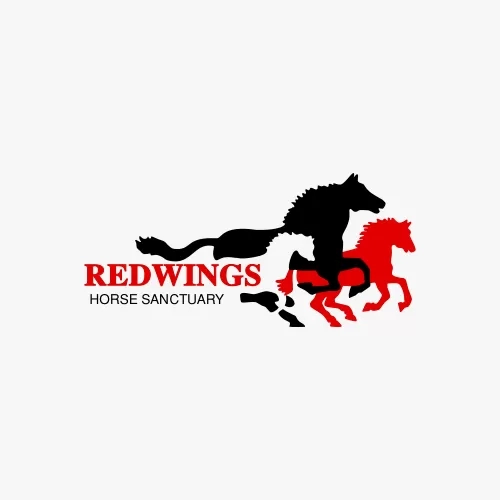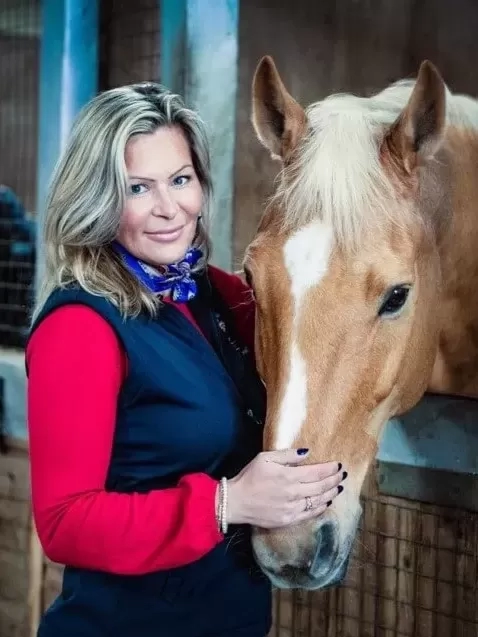04 April 2022

Here at Redwings, keeping our horses happy and healthy is at the top of our priorities, and with around 1500 equines in our care across all our farms, we really have our work cut out!
If you read last month’s blog, you’ll know that as horse owners and carers we should be aiming to make life good for our animals – not just providing what they need to stay alive. We should aim to make their lives fulfilling and worth living, and one of the best ways to do that is to provide companionship for our horses.
Companionship is vital for a happy horse. In the wild, horses would live in established herd groups for a number of reasons:
Companionship is not just something equines want, it is something they need. That’s why it is included in the Codes of Practice for Horses and Donkeys, and addressed in the Five Domains. Providing suitable companionship for horses and donkeys can make a huge difference to their wellbeing!
One study found that horses kept in isolation displayed several physiological symptoms of stress, in a higher degree than horses kept in more social surroundings. Though the study was small in size, it does offer insights into the kinds of negative impacts horses can experience when they are kept separate from others.
How can we provide companionship to our horses?
Herd Life
The advantage of having so many horses living on our farms is that they all have plenty of friends to choose from. Living in a group is the most natural life for a horse, since it’s what they do in the wild, but it does need to be managed carefully.
In the wild, it's up to the horses who they decide to live with. At Redwings, herds are picked carefully according to the needs of the horses. We respect already-existing pair bonds and friendships between horses, but sometimes we need to separate them in order to make sure the individual horse’s needs are met. This can be a difficult balancing act, but it’s one that’s essential to perform to ensure that all our horses are living their best lives.
It’s important to monitor herd dynamics, especially when introducing a new horse. Like people, not all horses are going to get along when they first meet, and there carries a risk of aggression and stress for all the horses involved. Keep an eye out for a Welfare Corner in future for advice and information about integrating horses!
One Friend
For most owners, having a herd of horses is not realistic. Most livery yards don’t keep herds of horses either, and integrating a range of horses with different routines and requirements can be a challenge. But it’s not the herd way or the highway – even just one friend can make the world of difference to a horse previously kept on its own. Maybe there’s another horse on the livery yard with a similar routine, and both individuals might benefit from being turned out next door to each other.

Having other horses nearby (within view or within at least hearing distance) can help make stressful situations less difficult for horses - though we should always remember that although being able to see or hear another horse is better than not being able to see or hear another horse, it is not as good as being able to touch another horse. Sometimes we have to put them in scenarios which challenge their comfort levels, such as a visit from the vet or dentist, but we can always help to make it a little easier for them. Even safely providing a special stable mirror in a stable can help to relax a horse who isn’t that keen on being kept in. We can even use them in our horseboxes on occasions when we have to travel horses alone!
Some people provide other animals as a companion for horses (like cows, sheep, or even pigs), which can be acceptable if it’s not possible to provide another equine companion, but having another horse or pony is really the best option. Horses have a highly specialised and complex way of communicating with each other, and without a friend who speaks the same language, they don’t really have anyone to “talk” to.
Bonded Pairs (and Donkeys)
While most horses and ponies will have one or two friends that they prefer to socialise with, some can grow very attached – this is what we call a bonded pair. This is when a pair are so closely bonded that separation can be extremely stressful for them, even leading to health issues.
Donkeys and other pair-bonded equines can suffer poor mental well-being, but also potentially serious physical problems if they are separated from a close friend; the stress of separation can increase the risk of serious conditions such as colic, laminitis and hyperlipaemia. Donkeys in particular are susceptible to hyperlipaemia, as they can become depressed and stop eating. In cases of hyperlipaemia, the body tries to compensate for the lack of food by releasing stored fat into the blood stream, which can overload the liver and kidneys and quickly become fatal.
Final thoughts on Friendship
It's easy to overlook how important it is for horses to socialise. They are prey animals who evolved to live in groups for safety and comfort, and though the lives they lead today are very different to those of their ancestors, we can still improve their lives by keeping their psychology and behaviour in mind.

Redwings Press Office
Find out more about Redwings Press Office


